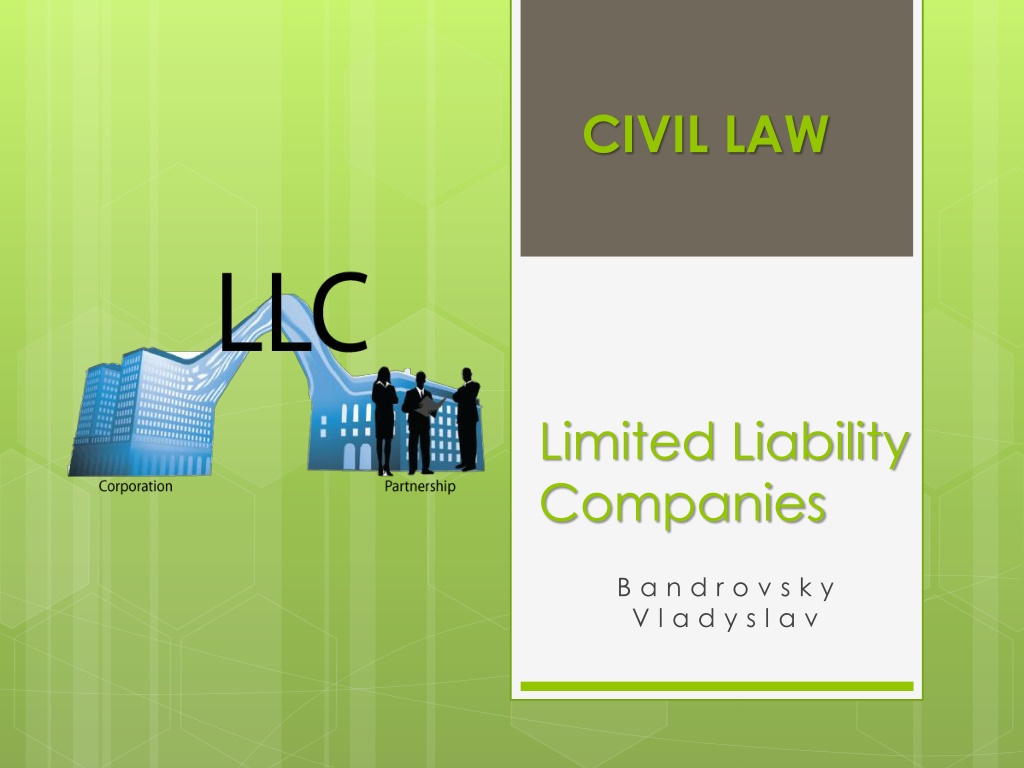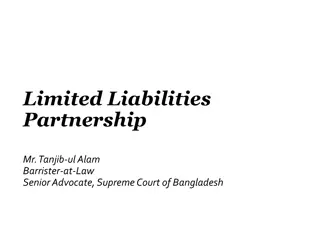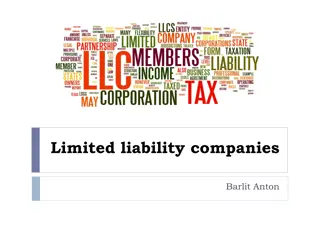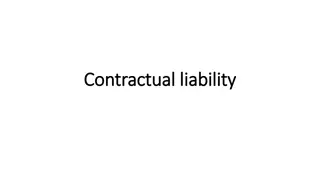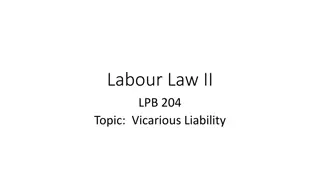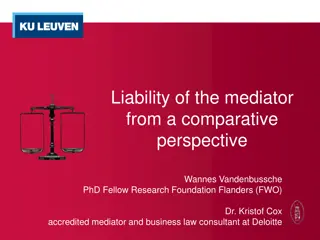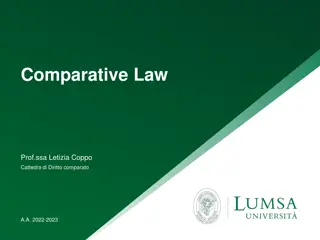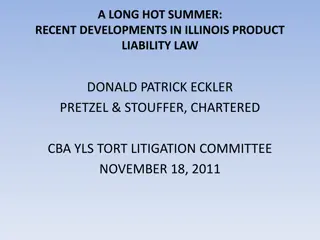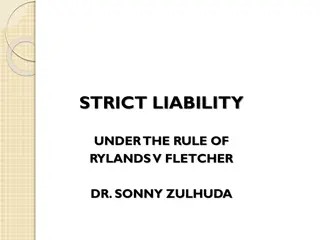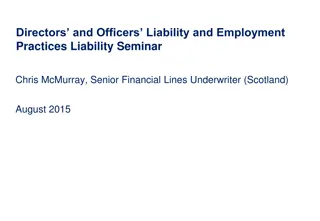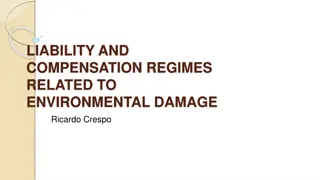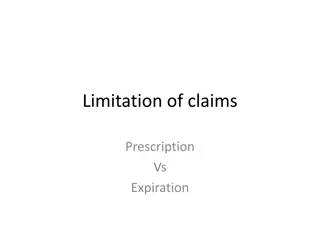Understanding Limited Liability Companies under Civil Law
Limited Liability Companies (LLCs) under civil law in the context of Bandrovsky Vladyslav involve various aspects such as minimum capital requirements, company organs, share transfers, liability of the company and its management board, civil liabilities, and fault of company governing bodies. These companies are run with specific capital amounts, management structures, share transfer regulations, and liability arrangements that impact how they operate and are governed.
Download Presentation

Please find below an Image/Link to download the presentation.
The content on the website is provided AS IS for your information and personal use only. It may not be sold, licensed, or shared on other websites without obtaining consent from the author. Download presentation by click this link. If you encounter any issues during the download, it is possible that the publisher has removed the file from their server.
E N D
Presentation Transcript
CIVIL LAW Limited Liability Companies B a n d r o v s k y V l a d y s l a v
Minimum capital Minimum capital amounts to 5.000 PLN. Minimum share should be at minimum of 50 PLN.
Organs of a company General Assembly Management Board Supervisory Board The Superior authority of a company. Company is represented by a Management Board (consisting at least of one person) according to principles laid down in a company deed or a company charter. A company may be also represented by proxy. May be optionally appointed. In limited liability companies whose initial capital exceeds PLN 500.000 and the number of share holders exceeds twenty five the Supervisory Board or audit commission shall be compulsory. GA is summoned by Management board, Supervisory Board or the shareholders representing not less than 10 % of the share capital.
Transfer Shares in an LLC may be transferred or pledged. Shares cannot be traded on regulated or non-regulated markets and may be transferred only by way of a written agreement with notarized signatures. The Deed may impose limitations: the consent of other shareholders right of preemption right of first refusal to other shareholders, giving them a priority right to buy any shares to be sold.
Liability Company liability Shareholder and management board liability The Company is liable for its debts and obligations with its whole property without any limitations. The shareholders are not liable for the company s obligations, they bear a risk up to the value of shares contributed. Where execution against the company has proved ineffective the members of the management board shall be liable jointly and severally for the obligations of the company.
Civil Liability If members of the management board have, willfully or out of negligence, provided false data in the process of the registration, they shall be liable to the creditors of the company, jointly and severally with the company, for three years from the date of registration of the company or registration of the increase of the share capital.
Art. 293. Fault of members of company governing bodies. A member of the MB , the supervisory board (audit committee) and a liquidator shall be liable to the company for damage caused by acts or omissions in breach of the law or the provisions of the articles of association, unless he is not at fault. If the damage has been caused by several persons jointly, they shall be jointly and severally liable for such damage.
Art. 295. Action of shareholder (defence of defendant). If the company does not bring an action for a redress of damage caused to it within one year of the date on which the act causing the damage is discovered, each shareholder may file a writ in an action for a redress of damage caused to the company.
Art. 270. Reasons of the dissolution 1) the reasons stipulated in the articles of association, 2) a resolution of the shareholders on dissolution of the company or on the transfer of the seat of the company abroad, recorded in the minutes recorded by a notary, 3) a declaration of bankruptcy of the company, 4) other reasons provided for in the law. Additionally, the company may be dissoluted by a court `s judgment
The liquidation shall be opened: on the date when the judgement on dissolution becomes final and non- appealable, on the date of adoption by the shareholders of the resolution on dissolution of the company or of the occurrence of another reason for its dissolution.
During the liquidation process: Liquidation shall be carried out under the name of the company with the additional words w likwidacji ( in liquidation ). the company shall retain legal personality. no payment, even partial, of the profits may be made to the shareholders, nor may the company assets be distributed before satisfaction of all debts. The members of the management board shall act as the liquidators
